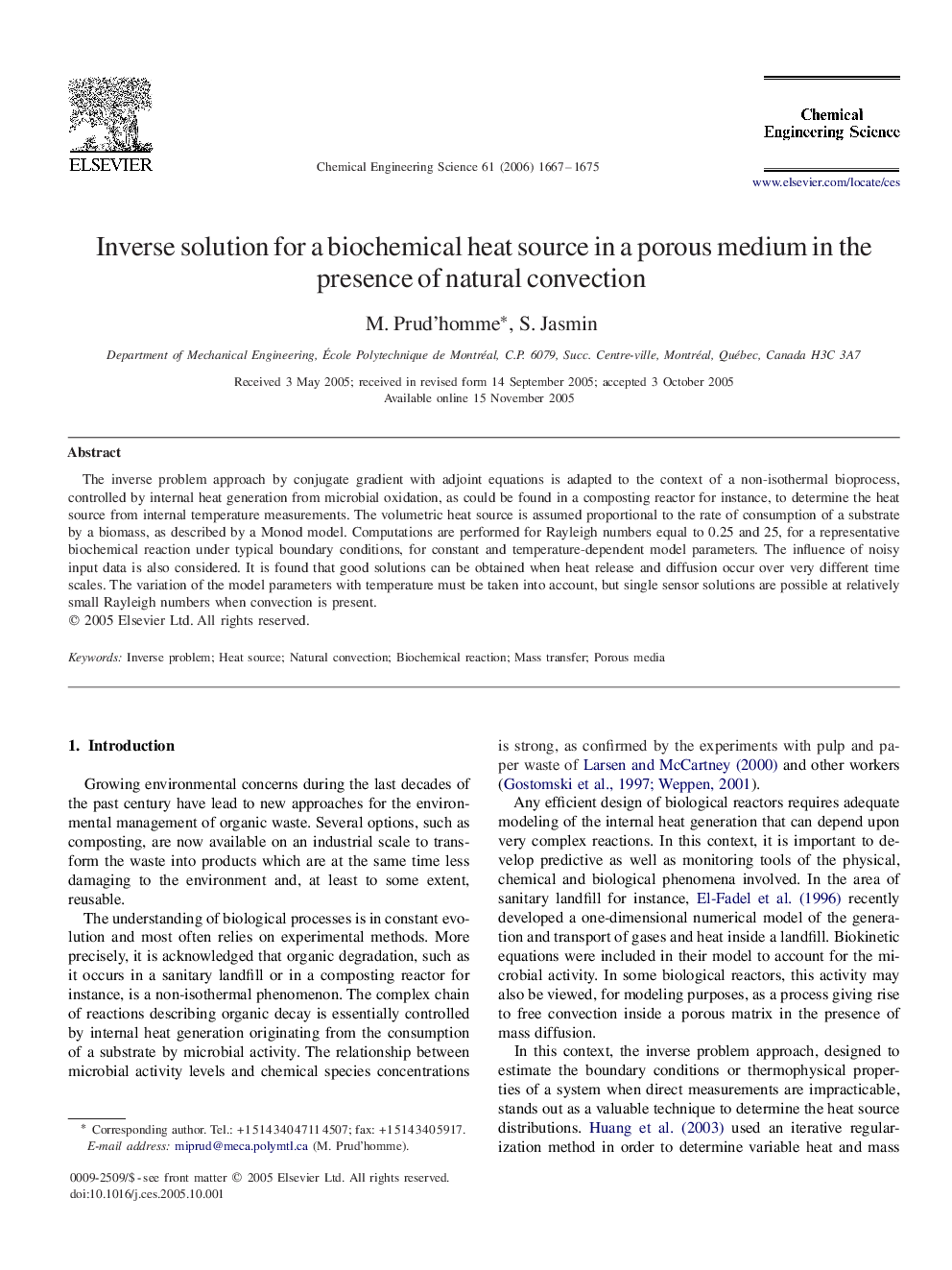| Article ID | Journal | Published Year | Pages | File Type |
|---|---|---|---|---|
| 159985 | Chemical Engineering Science | 2006 | 9 Pages |
The inverse problem approach by conjugate gradient with adjoint equations is adapted to the context of a non-isothermal bioprocess, controlled by internal heat generation from microbial oxidation, as could be found in a composting reactor for instance, to determine the heat source from internal temperature measurements. The volumetric heat source is assumed proportional to the rate of consumption of a substrate by a biomass, as described by a Monod model. Computations are performed for Rayleigh numbers equal to 0.25 and 25, for a representative biochemical reaction under typical boundary conditions, for constant and temperature-dependent model parameters. The influence of noisy input data is also considered. It is found that good solutions can be obtained when heat release and diffusion occur over very different time scales. The variation of the model parameters with temperature must be taken into account, but single sensor solutions are possible at relatively small Rayleigh numbers when convection is present.
